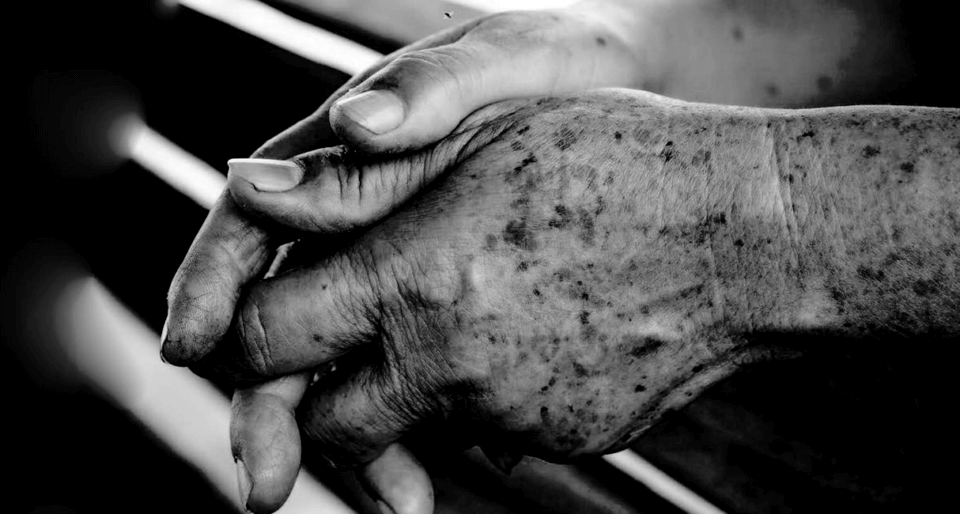
“I’d be very surprised if a super intelligent AI a thousand years from now cannot recreate everything. Also, like so many other people, including Elon, I believe there’s probably a 50% chance we’re in a simulation. So, that would defeat the idea of death as well.”
Editor’s note: Zoltan Istvan joined Merion West previously for a pair of interviews in 2017, given the magazine’s long-standing interest in anti-aging technologies.
Death is a fundamental part of life. Or is it? Zoltan Istvan, a prominent transhumanist, believes our understanding of death is badly mistaken.
In this conversation with Istvan, the topic under consideration, technically, was the life-extension movement. It is an exciting time in this area, as scientists are continually making significant breakthroughs to turn back the clock on aging. For example, age reversal techniques were recently shown to restore vision in primates. Commenting on this news, Harvard Medical School professor David Sinclair noted: “Next up: age reversal in humans.”
While Istvan supports the anti-aging project, his perspective has shifted due to recent breakthroughs not in biological treatments but, rather, in artificial intelligence (AI). At the rate AI is advancing, he believes we will likely transform into digital beings—thereby thwarting death—even before we successfully reverse aging in our human bodies.
The following conversation, recorded via Skype by Merion West’s Peter Clarke, has been lightly edited for length and clarity.
Before we even talk about life extension, we’re living at a time when life expectancy is going down in the United States. Do you have any insights about what can be done about this basic problem of people dying prematurely?
To begin with, Peter, many Americans are depressed. So you see depression and suicide rates skyrocketing. I’m a strong believer that if you have cancer, if you have a disease, and you have a will to fight, your will itself can act almost like a drug. But when you’re depressed, you have no will to want to continue living. I think that’s what’s happening with a lot of people.
To some extent, this is an economic and to some extent a psychological situation, where people just don’t have very good lives. Social media is making it ten times worse because they can see what all the rich people are doing. And this will only get worse until we find a system that makes us want to live longer.
It’s hard to convince people of the longevity movement if they have no incentive to live. They’re like, “This is crazy. I don’t want to live longer in this hell hole.” That’s what a lot of people tell me. If you travel through Middle America, that’s what a lot of people say. They’re obese; they’re just watching stupid stuff on television that makes them angry. They feel like they have no reason to continue. And I think that’s really catching up with America.
Tim Urban recently tweeted that he wants to live 5,000 years because that would give him all the time he needs to explore what he wants to see. That optimism is something, in my view, that we need to spread. I like the idea that you don’t have to live just one life, but if you live long enough, you can have multiple careers and effectively live multiple lives.
Let’s just say that we do have some advancements that make meaningful life extension possible so someone like Tim Urban can have his ideal life expectancy. Are we societally ready for that? Or do you think it would just cause chaos?
I think it’s going to cause chaos for sure. The question is whether it’s positive chaos that results in something more promising or not. I would be up for people living as long as they want, without having the specter of death hanging over them. And I think if you are in a depressive state, or if you are like many senior citizens who are like, “I’ve lived a good life, and now my life is really downhill,” then there’s certainly an argument that they should be allowed to check out when they want.
But I think the transformation of people being able to live longer is going to have huge ramifications. A lot of people make fun of the World Economic Forum, saying “Oh we’re going to eat insects, own nothing, blah, blah, blah,” but I think a lot of those theories are probably exactly correct when it comes to what’s going to happen. So, people are going to have to be happy doing very different things. It will probably be something very similar to the movie WALL-E, where they’re just being entertained all day, and hopefully they don’t become giant obese people doing nothing. But that is very realistic.
But I’ve got to be honest: I’m not even really willing to consider scenarios anymore that involve biological species living 50 years longer from now. (Maybe 50 years from now but certainly not 50 years beyond that.) I just cannot imagine that humans are going to survive in the way they are now. I think we’re talking about seeing the singularity here in ten, 20, 30 years for sure. This brings massive change. If you look at the timeline, advances in AI are just going like this [raising his hand straight up].
So you’re thinking it’s more likely we’ll merge with machines?
Yes, we’ll merge with machines. We’ll have totally different experiences. And I’ve got to be honest, the machine world, the machine age, the AI age, is just going to pass in ten or 15 years. We’re just entering the AI age, but the AI age could be gone in 15 years because it becomes smart enough to realize the quantum age or something else, some other age beyond that. Maybe we all become an intellectual hive mind. It’s hard to know exactly, and I’m not sure of the timelines.
But one thing I’m quite sure of: Look 100 years into the future, and there are no more biological humans—unless there are a few left on planet Earth just to be preserved or something like that. But even that, and even the planet, I worry might entirely be consumed or left abandoned as we just completely go out across the universe. And when I say “go out,” I don’t mean we’re going to go out as cyborgs and things like that. We’ll probably go out across the universe virtually, where everybody is in a tiny little chip. (Or, not a chip.) Again, I doubt it’s going to remain a physical thing; it’s going to be much more quantum.
When you talk about where we could go and what the singularity is…If the singularity even has five seconds to exist, then it becomes a hundred-thousand times smarter, more powerful. So, when you start looking at the J curve, if we make it, what happens? Considering this, that’s why I’d be completely surprised if our consciousness even continues—if the entity Zoltan even continues in any real form.
So, I worry that, as we speculate about where’s the 50-year window for biological humans, there may not be any humans at all. It may be the case where we all upload. And I think that’s probably what’s happened with other alien species that have reached the singularity. Nobody’s contacting us or anything like that because it would be like trying to read Shakespeare to an ant. It doesn’t even make sense.
Elon Musk has been saying that he’s worried about the ossification of society if people live too long. I’ve critiqued this view in a recent article for Merion West. But you’re saying that you think the ossification of society is a silly consideration because of what’s going to happen with the AI world.
It’s a very real possibility that a lot of people stay on Earth and just remain humans. In that case, they can live longer as biological creatures, but they’re not going to contribute anything in any significant way anymore, in terms of innovation. Those of us that upload are going to look at them and be like, “Wow…” I mean—it’s not even a human versus a chimpanzee. It’s much more like a human versus an amoeba in terms of intellectual capability.
But I disagree with Elon anyway. I think every time a person dies, a library dies, a beautiful thing dies. And also there’s quantum archeology: this idea that we can reverse-engineer subatomic matter and then 3D-print that out. And that would mean bringing back your great, great grandfather exactly as he was. Now, the point is: Does death really exist when AI becomes that smart and has those capabilities where you can bring back anyone exactly as he was?
You have this term you use: Deathism. This term is really fascinating because it reframes our perspective about dying. The idea that we just accept death as inevitable is deathism. But it seems that, if we upload ourselves, our human bodies would die. So, would you say that, as we conceivably move into the AI age, it’s human consciousness that we should seek to preserve?
I think everyone has to make that decision individually. Some people are really connected to the body. Cutting off one’s head is still $80,000 to be cryogenically frozen versus $200,000 for the body. I’m just not sure I’m going to need my body in the future.
Maybe consciousness does tie into the body, but we’ll learn to either simulate that or live without it. I think we can get to a point when we could be very different types of beings and have very different types of consciousnesses, but what we want to preserve is that sense of me, that sense of I—as in, “I’m this person.”
It’s this new way of looking at death. Everyone thinks that death is inevitable. First of all, I don’t even believe in death because of quantum archeology and all these other ideas. I’d be very surprised if a super intelligent AI a thousand years from now cannot recreate everything. Also, like so many other people, including Elon, I believe there’s probably a 50% chance we’re in a simulation. So that would defeat the idea of death as well.
But the point is that those who subscribe to deathism are totally off base and just haven’t really looked at the reality that the human being is a machine; that we’re here in this strange existence as it is; and that we can probably recreate it pretty easily once we get the tools to do so. And we will. It’s just really a matter of time, assuming that AI doesn’t destroy us all. But even if AI did destroy us, AI would still have the ability to bring us back, meaning still that death doesn’t really exist in a formal way.
I’ve heard you say recently that you’re not going to run for political office again in the near future but you might at a later time. If you were to run for political office again, what positions would be on your platform? What would you be advocating for?
I am looking at 2028 for the presidency, and I’d probably run as a Democrat this time. That way I will have done all the parties. I’m mostly a centrist that focuses on science and technology issues. That’s what I run on.
I’m currently at the University of Oxford doing graduate studies because I felt like, without a graduate degree, I wasn’t competitive enough. But what’s going to be interesting in 2028 is that all the things I’ve been talking about—artificial intelligence, genetic editing—are actually here. When I was talking about them in 2016 and 2020, they were still pretty early. But, really, we’re in the age now. So I think I will have a much better chance in 2028 when running on a political platform that embraces science and technology.
But the number one thing I would do as the leader of the country is take a ton of money from the military and put it into the healthcare system. And I don’t mean “healthcare system” in terms of changing infrastructure. I mean, let us take down cancer once and for all. Let us fight a war against diabetes. Let us eliminate Alzheimer’s from the human race. These are the types of political decisions I would be making on day one. Let us take a huge amount from the U.S. military and put it directly into the scientific industrial complex. It just blows me away that somebody’s not doing that yet.
But I’d also run on the idea that AI is probably something that needs to happen, and there needs to be a transition. I’ve written an article about this for Vice. What happens when one country gets access to the singularity? What if we have access to the greatest AI on planet Earth? How do we share it? How do we use it to improve the lives of American citizens? What if China has something similar? It’s a really interesting time, and it’s hard to know how it’s going to unfold. But one thing’s for sure: It’s going to take a leader, who thinks about things other than just immigration, taxes, and transgenderism. These are not the things ruling the world anymore. What’s ruling the world is radical technology that’s almost akin to an alien species entering our atmosphere. And no one’s dealing with it yet. No one knows how to use it for the betterment of human good. It’s not just a geopolitical issue this time. This is the end times. So someone has to be good at managing in the end times to ensure the best outcomes for the human race.
Now, these are probably not very good voting issues because they may be a little too far-fetched for people. But whether we like it or not, these things are happening now. This is an amazing age to be alive, and we’re all so lucky to be able to see these crazy things. But it’s going to take a different type of leadership—and not just one that focuses on petty issues.










